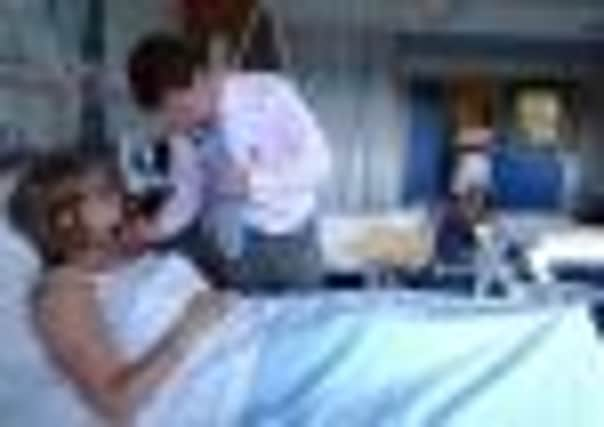Lothians’ hospitals show virus a clean pair of hands


Closure rates have plummeted across Lothians hospitals compared with last year, when more than 60 wards were shut.
Health chiefs acknowledge the battle against the vomiting and diarrhoea bug has not been won, with 14 wards closing due to norovirus since September.
Advertisement
Hide AdAdvertisement
Hide AdHowever, at around the same point last year the total was already at 32. Over the whole of last winter there were 67 outbreaks.
Bosses at NHS Lothian are optimistic outbreaks can be kept to a minimum for the remainder of the cold season, and put the success down to improved hygiene and surveillance.
The health board’s director of public health, Dr Alison McCallum, said: “NHS Lothian, in common with the rest of Scotland, is experiencing lower levels of norovirus so far this winter. However, we also have robust infection control procedures in place which detect and deal with the virus swiftly and efficiently.
“Handwashing and good hand hygiene are critical to prevent the spread of norovirus, and recent figures show that NHS Lothian is achieving 95 per cent compliance among health staff across the board.
“We have also increased awareness and education among visitors to the hospital.
“When the virus does appear, we have stringent cleaning policies to ensure a safe environ-ment. This protects patients from infection and allows wards to operate to full capacity.”
Hugh Pennington, a microbiologist at Aberdeen University, said: “It’s hard to pinpoint an exact reason [for the reduction in cases].
“It does get worse in the cold so the better weather [compared with last year] could be the reason. So, too, could the increased attention paid by hospitals.”
Advertisement
Hide AdAdvertisement
Hide AdThe first of this year’s 14 closures was in September, earlier than many expect norovirus to strike, when a ward at the Royal Victoria Hospital was closed.
In October, five more were shut, including one at the Edinburgh Royal Infirmary.
Eight more wards during November and December were affected, including the Sick Kids’ ward one.
The infection only causes discomfort and inconvenience among the bulk of the population. But when it hits frail and vulnerable patients, particularly elderly ones, the consequences can be far more serious.
Symptoms include vomiting, diarrhoea and nausea, which can last between 12 and 60 hours.
Comment – Page 12